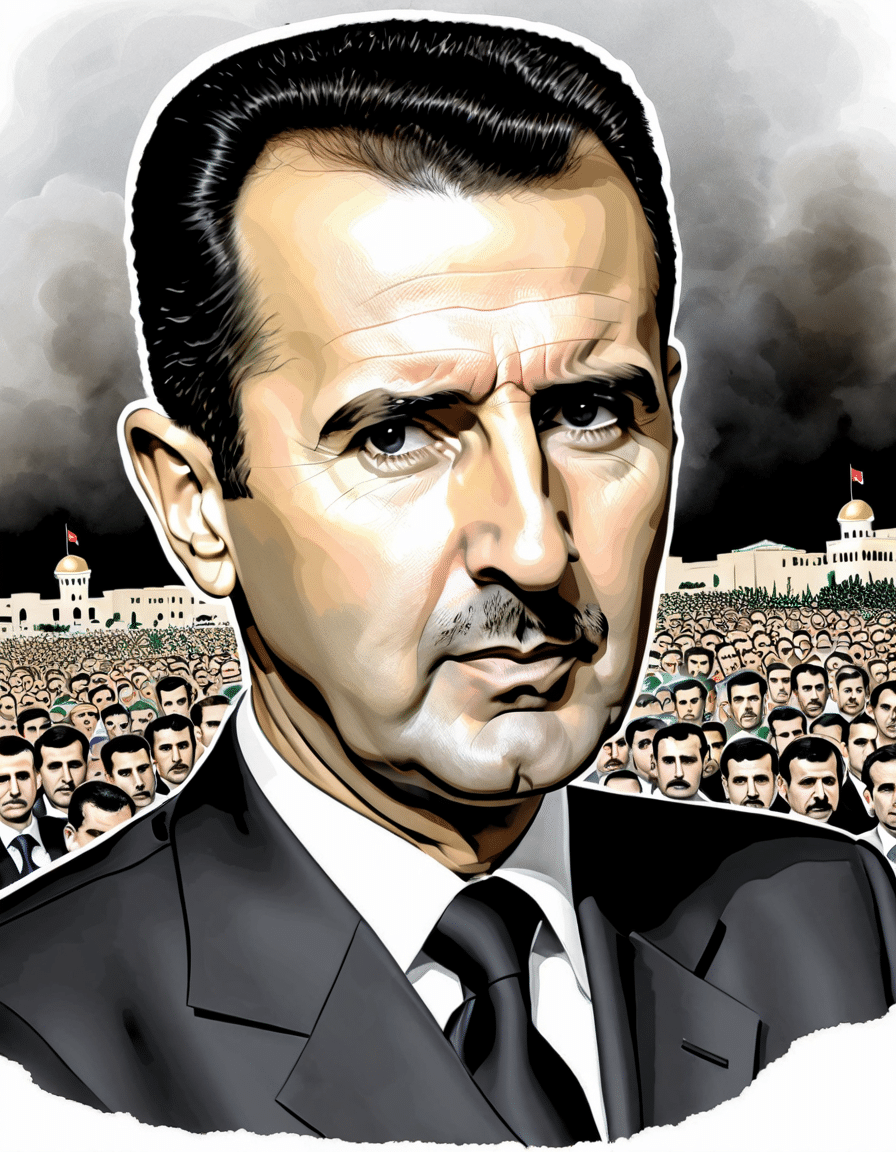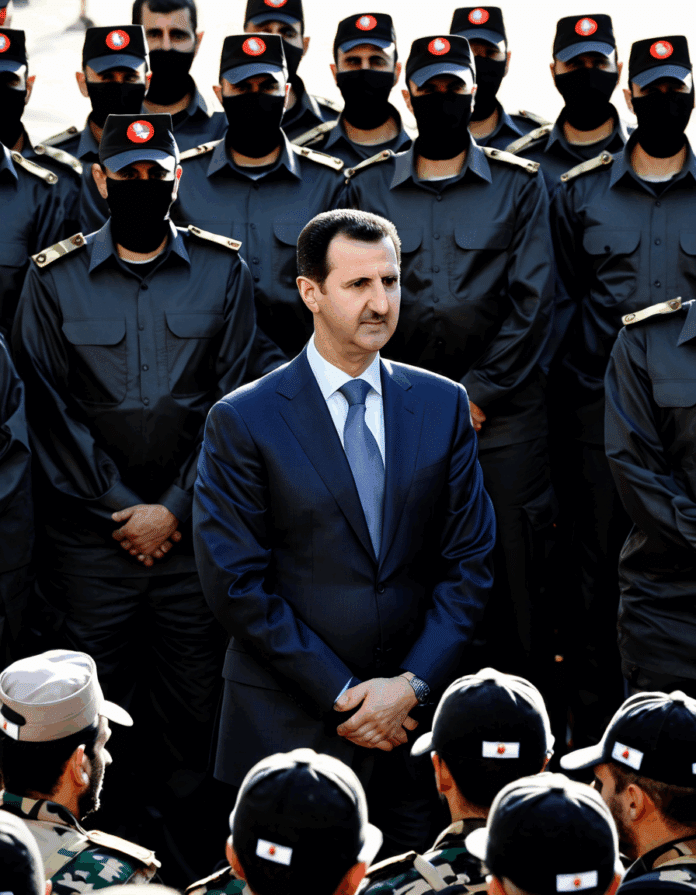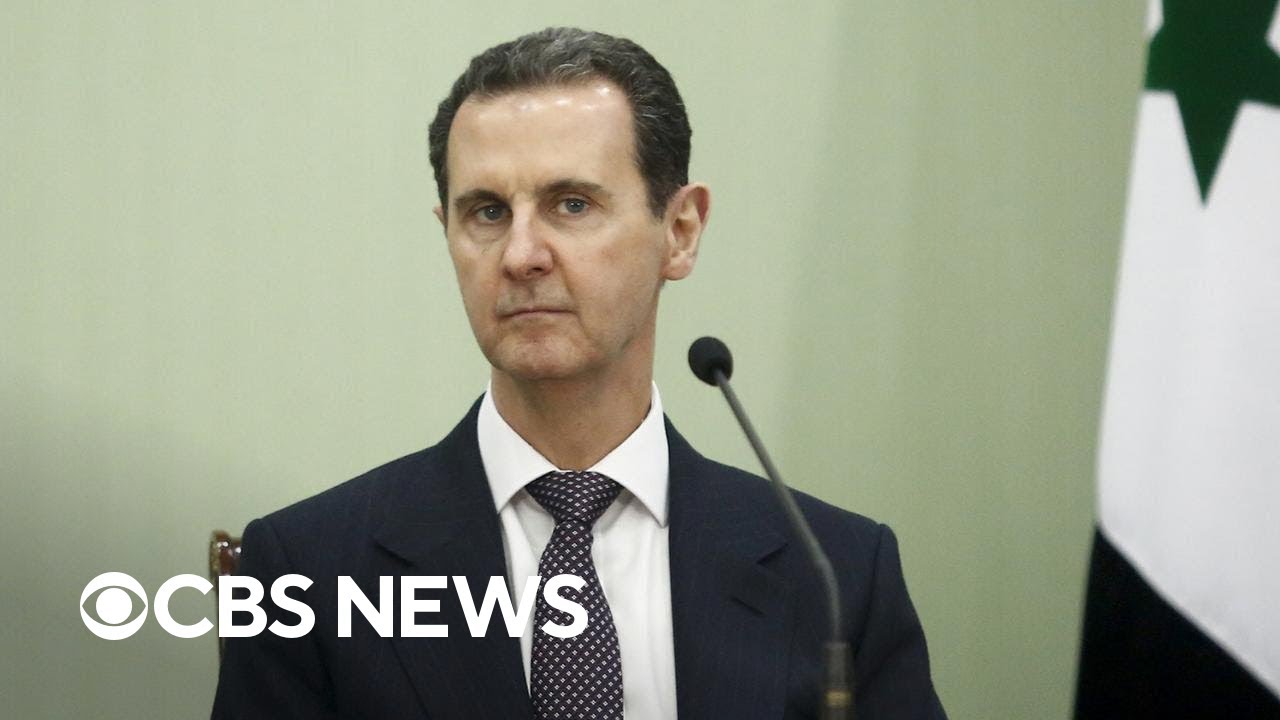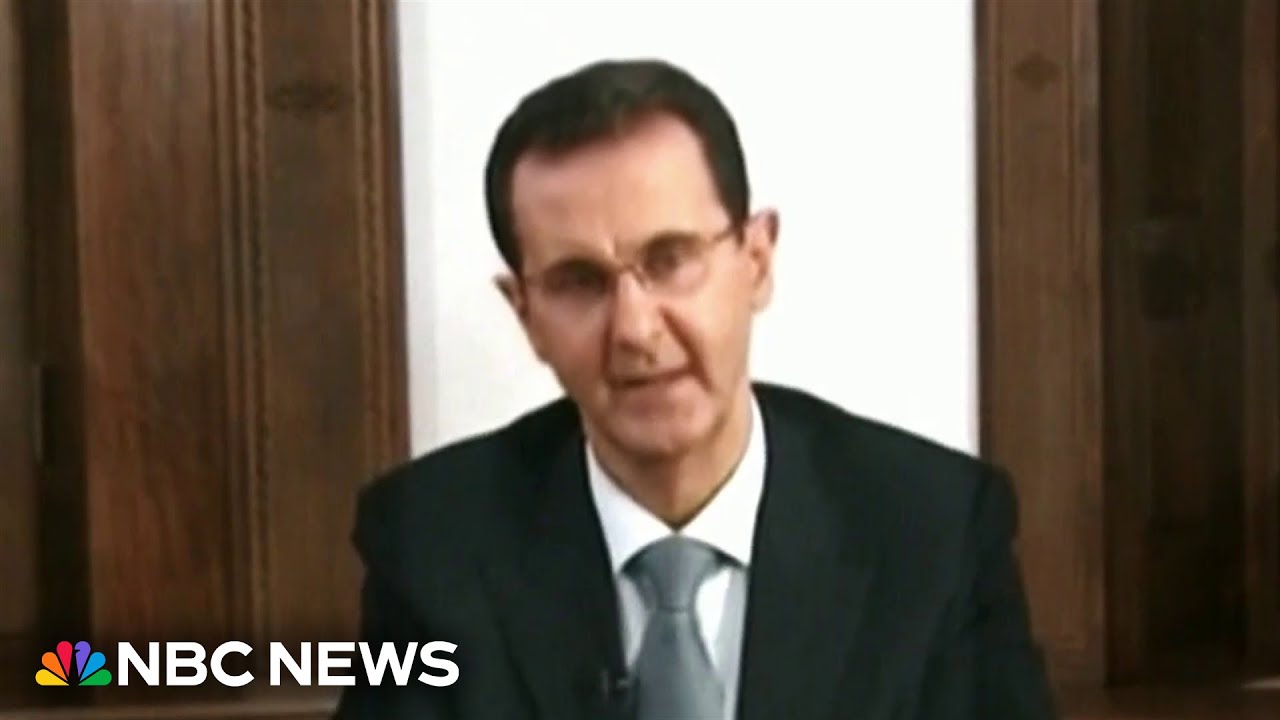The Rise and End of Bashar al Assad’s Regime
Bashar al Assad’s regime opened its doors in 2000, but instead of ushering in hopes of democratic reform, it propelled Syria into a tangled web of suffering and violence. The son of Hafez al Assad, former president and leader of the Ba’ath Party, Bashar inherited a legacy steeped in political privilege. Early on, many believed he would soften the iron grip of his father’s rule—but those hopes quickly faded. His regime became infamous for its brutal repression of dissent, leading to severe human rights violations and, eventually, the outbreak of a devastating civil war in 2011.
The Arab Spring acted as a catalyst for this upheaval, igniting protests that demanded freedom and reforms. Instead of heeding the calls for change, the Assad regime responded with violence, unleashing security forces on peaceful demonstrators. This marked the beginning of a civil war that has turned Syria into an epicenter of chaos and a tragic flashpoint in global politics. As violence escalated, the country faced not just internal strife but also external interventions, altering the geopolitical landscape of the Middle East forever.
To truly understand the fall of Bashar al Assad, one must consider the pivotal events that chipped away at his regime’s foundation. From the onset of the Arab Spring to military engagements from global powers, Assad’s attempts to cling to power were met with fierce pushback both domestically and internationally. This fight against the tide of history culminated in a significant shift as definitive challenges arose, ultimately leading to his abrupt fall from grace and power.

5 Key Events Leading to Bashar al Assad’s Fall from Power
The wave of protests in 2011 ignited demands for reform in Syria. What began as peaceful demonstrations quickly turned into a violent confrontation between civilians and the regime. Bashar al Assad’s response was a brutal crackdown that only intensified civil unrest, leading to all-out war.
The world watched in horror as reports of chemical weapons attacks emerged. The 2013 Ghouta attacks sent shockwaves through international communities, prompting harsh condemnation and prompting Western countries to consider military options. These incidents strained relations between Russia, which staunchly defended Assad, and Western powers, marking a significant escalation in the conflict.
Amid the chaos, the Islamic State of Iraq and the Levant (ISIL) surged, capitalizing on Syria’s instability. Their brutal tactics not only threatened Assad’s regime but raised alarm bells around the globe regarding the rising tide of extremism. The international focus shifted as countries began to rethink their strategies towards tackling terrorism.
In September 2015, Russia intervened on behalf of Bashar al Assad, offering military might that turned the tide of war. This support enabled Assad to reclaim significant territories and weakened opposition forces. However, this intervention also sowed deeper conflict, complicating relations within the region and further polarizing global actors.
The civil war has led to one of the largest humanitarian crises in modern history. Millions fled their homes, with a sprawling diaspora of Syrian refugees seeking safety. International outcry against the regime’s tactics grew louder, eroding Assad’s credibility and diminishing local support, further isolating him on the world stage.
The Impact of Cultural Events in Syria: Eid Mubarak Celebrations Under Assad’s Rule
While war raged, cultural and religious events like Eid Mubarak took on special meaning for Syrians. These occasions, which traditionally foster community and joy, transformed under Assad’s regime into solemn reminders of loss and hardship. Families that once gathered in celebration now often find themselves in refugee camps, clinging to the remnants of normal life.
Under the shadow of the regime’s policies, Eid Mubarak celebrations served as a double-edged sword. On one hand, they provided a brief respite from the suffering; on the other, they highlighted stark disparities. Assad’s attempts to portray stability during these times clashed sharply with the reality faced by everyday citizens, generating criticism that reached beyond Syria’s borders.
Despite the overwhelming grief, many Syrians continue to celebrate Eid as a form of resistance against despair. In every meal shared and every prayer recited, they reclaim a semblance of their culture. This resilience represents the enduring spirit of a nation deeply affected by strife yet intrinsically tied to its traditions.

Comparative Analysis: Bashar al Assad, Kareem Abdul-Jabbar, and Osama Bin Laden
Diving into the lives of assigned historical figures showcases varied routes taken and the impacts of their actions. Bashar al Assad, Kareem Abdul-Jabbar, and Osama Bin Laden—while entirely different in their pursuits and public perceptions—evoke powerful responses from society.
The Future of Syria: Looking Ahead Post-Assad
As we peer into the future of Syria in a post-Assad world, the complexities of rebuilding become evident. The past decade of conflict has carved deep psychological scars, leaving behind a landscape of destruction that will require concerted efforts for recovery. The role of the international community will be vital as it navigates economic support and reconstruction initiatives necessary to foster stability.
Glancing ahead, there’s cautious optimism for creating a governance structure that could promote inclusivity and unity among the diverse factions in Syria. However, challenges abound as various groups continue to vie for power, and ideological divides threaten to scuttle any possibilities for national unity.
As we reflect on Bashar al Assad’s controversial regime, understanding this dynamic fusion of historical significance and cultural resilience will be crucial. The path forward hinges not just on infrastructure but on prioritizing human dignity, peace, and reconciliation as the nation emerges from the shadow of its turbulent past.
The narrative of Bashar al Assad and the Syrian conflict reminds us that history is often written in blood and sorrow but also in the unyielding spirit of those who strive for hope, identity, and a brighter future for generations to come.
Bashar al Assad’s Unfolding Narrative
A Glimpse into Bashar al Assad’s Background
Bashar al Assad, born in 1965, wasn’t always destined for the presidency of Syria. Initially, he pursued a career in ophthalmology and even trained in the UK. Little did he know that his life would shift dramatically after his older brother’s tragic death in a car accident. He returned to Syria, stepping into the political spotlight and eventually succeeding his father, Hafez al Assad, in 2000. This turned out to be more of a hot seat than he bargained for, considering the political unrest that followed. When we think of similar pressures, one can’t help but ponder the strategic finesse displayed in the world of competitive sports, like those thrilling matchups between Ohio State Vs Penn state.
The Marriage of Politics and Personal Life
Bashar al Assad’s personal life reflects the crossroads of politics and tradition. He married Asma al Assad in 2000, a woman described as modern yet firmly rooted in her Syrian Arab identity. Their union was touted as a symbol of a new era for Syria; however, conflict soon overshadowed their marriage. Interestingly, while discussing their relationship, one might compare proposed gestures like an engagement ring to the political alliances that shape regimes. Both hold significance, though often fraught with expectations.
The Syrian Civil War and Shifting Power Dynamics
The outbreak of the Syrian civil war in 2011 put Bashar al Assad in an incredibly tough spot, highlighting his government’s vulnerabilities. How does one maintain control when chaos reigns? His regime faced widespread protests demanding reforms and ultimately spiraled into a complicated conflict that attracted attention from around the globe. Amidst this turmoil, countries sought to understand Syria’s challenges, reminiscent of hotel accommodations during the cold winter months, where travelers find solace, such as when searching for Hotels in Winter Park fl.
Despite the ongoing struggle, Bashar al Assad remains a controversial figure, demonstrating the fluidity of power. The one-time hopeful leader is often viewed through a critical lens today. He holds fast to his position, even as the landscape looks vastly different than in his father’s time. As people question his legitimacy, discussions often draw parallels to tools like the Andis clipper, designed for precision but regularly adjusted to suit evolving trends. For al Assad, navigating the shifting allegiances reflects his adaptation, whether through media portrayals that echo channels like Ktla news or public sentiment that fluctuates with the tide of war.







